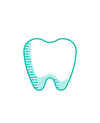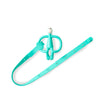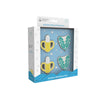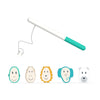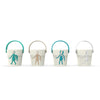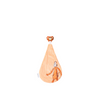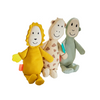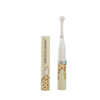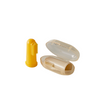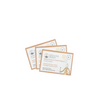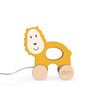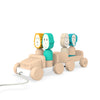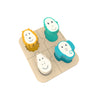When To Start Your Baby On Food
Introducing solids to your infant is an exciting milestone. Typically, you should start introducing solid foods when your baby is around six months old. However at the beginning, how much your baby eats is less important than getting them used to the idea of eating. They'll still be getting most of their energy and nutrients from breast milk or first infant formula.
Why Wait Until Around 6 months?
- Breast milk or first infant formula provides your baby's energy and nutrients until they are about 6 months old (with the exception of vitamin D, in some cases).
- If you breastfeed, feeding only breast milk up to about 6 months will help protect your baby from disease and infections.
- Waiting until about 6 months gives your baby time to develop, so they can cope with solid foods completely. This includes solid foods which are added to the milk in purées, cereals and baby rice.
- The baby would be best placed to move, chew and swallow food around their mouth. This may mean that they will be able to switch quickly to a range of tastes and textures (such as mixed, lumpy and finger foods) and do not need any smooth, blended foods.
Note: If your baby was born prematurely, ask your health visitor or GP for advice on when to start introducing solid foods.
Signs Your Baby is Ready For Solid Foods
There are 3 clear signs, which show your baby is ready for their first solid foods alongside breast milk or first infant formula. They'll be able to:
- Stay in a sitting position and hold their head steady
- Coordinate their eyes, hands and mouth so they can look at the food, pick it up and put it in their mouth by themselves
- Swallow food (rather than spit it back out)
How To Start Solid Foods
Your baby will only need a small amount of food in the beginning before its usual milk feed. Don't worry about how much they eat. The most important thing is to get them used to new tastes and textures, and to learning how to move and swallow solid foods around their mouths.
Much of their energy and nutrients can also be derived from breast milk or baby formula. However, do not add sugar or salt (including stock cubes and gravy) to your baby’s food, as babies shouldn't eat salty foods because it's not good for their kidneys and sugar can cause tooth decay.
Baby’s First Foods by Age
As for the first baby foods there are no hard and fast rules. To get your baby used to different tastes it is more important to offer a variety of fruits , vegetables, and meats in any way. Here's a few suggestions...
4 to 6 months: Single-grain cereals

Cereals are iron-fortified and why they're great to start with. Combine with four to five teaspoons of breast milk or formula one teaspoon of single-grain cereal. Do not force your baby to keep eating if they shake their head no, turns away or refuses to open after just one bite.
4 to 8 months: Pureed veggies, fruits, and meats

You might have heard that eating fruit before vegetables can cause sweet foods to have a lifelong preference, but there is no research to back that up. So it's up to you if you start with bananas or carrots or pureed chicken.
The AAP also believes that introducing allergenic foods early can reduce the risk of developing a food allergy, especially if your child is at risk. Common allergenic foods include peanuts, eggs, and dairy.
6 to 8 months: Finger foods

When your baby has the confidence to sit up and take her hands or other things to her mouth, you should give her finger foods to help her learn to eat. Make sure anything you give your baby is easy to swallow and cut into small pieces to avoid choking. Types include small bits of banana, wafer-like cookies or crackers; scrambled eggs; well-cooked pasta; well-cooked, finely chopped chicken; and well-cooked, cut-up potatoes or peas.
Use a blender or food processor, or simply mash softer foods with a fork, if you want to offer your baby fresh food. No extra salt or seasoning should be used to cook all fresh foods. If you can feed your baby raw (mashed) bananas, most other fruits and vegetables should be cooked until they are tender. Refrigerate any food that you don't need and search for any signs of spoilage before giving it to your baby. Fresh foods are not bacteria-free, so they will spoil more quickly than food from a can or jar.
9 to 12 months: Chopped, ground, or mashed foods

As soon as your child is able, transition them away from smooth purees. Incorporate more textured finger foods such as yoghurt, cottage cheese, mashed bananas and mashed sweet potatoes. You can also consider pureed meats such as beef, chicken, and turkey.
Safety & Hygiene
When introducing your baby to solid foods, it's important to take extra care to not put your baby at risk. Read more about food safety and hygiene and foods to avoid giving babies.
Key food safety and hygiene advice:
- Always wash your hands before preparing food and keep surfaces clean.
- Cut small, round foods, like grapes and cherry tomatoes, into small pieces.
- Wash and peel fruit and raw vegetables.
- Cool hot food and test it before giving it to your baby.
- Avoid hard foods like whole nuts, or raw carrot or apple.
- Remove hard pips and stones from fruits, and bones from meat or fish.
Always stay with your baby when they're eating in case they start to choke.
Additional Information from Matchstick Monkey:

